
GIVE THIS RAMADAN
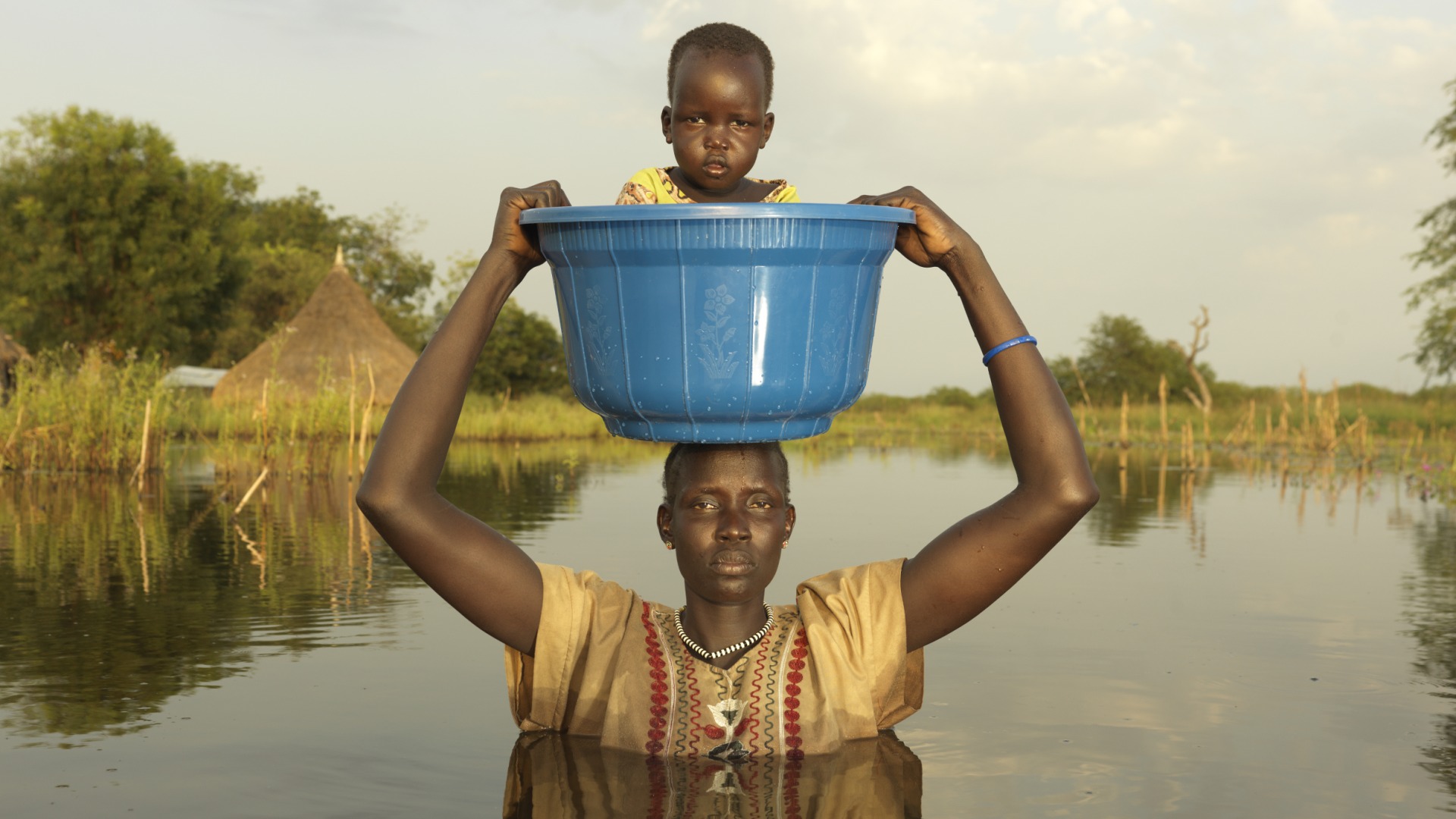
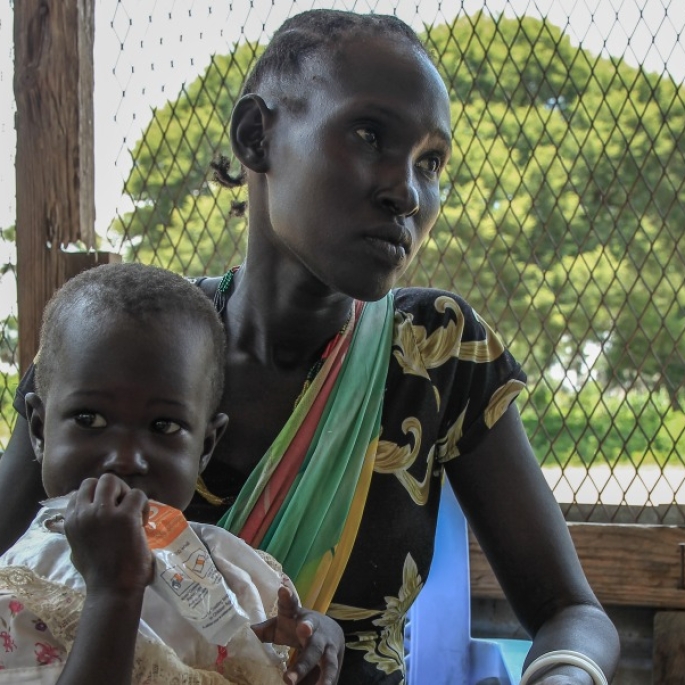
Three in four families in South Sudan face severe food insecurity. Food insecurity is the highest since the country gained independence in 2011. South Sudan is vastly underdeveloped, lacking basic infrastructure for education, health systems, safe water, functioning markets, or paved roads.
About 80 percent of the population live in rural areas and rely on livestock and subsistence farming to survive. Conflict and climate disasters, including extreme flooding, has destroyed homes and food sources and driven families to flee, often with few resources to survive.
In hard-to-reach areas of South Sudan, Action Against Hunger is often the only organization providing lifesaving health and nutrition services and access to safe water. We’re helping hundreds of thousands of people impacted by extreme flooding, including building a new waterway for people and supplies, teaching rice farming in flood-prone areas, and more.
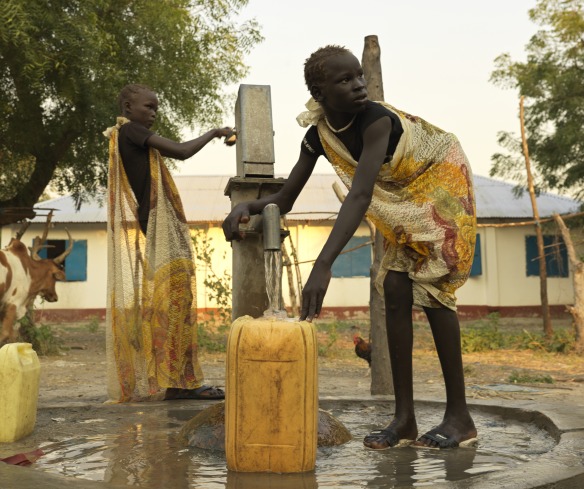
People Require Food Assistance
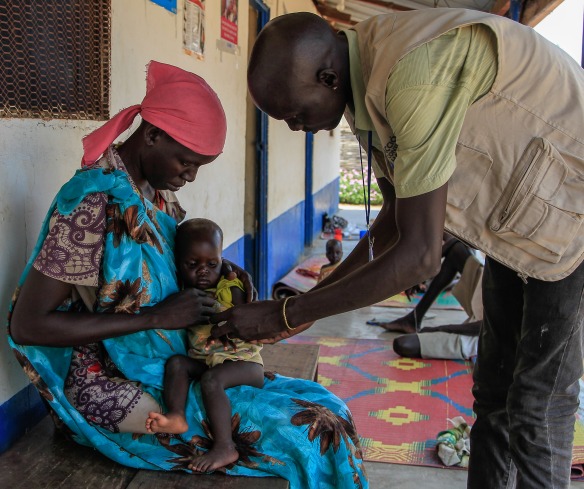
Children At Risk of Acute Malnutrition
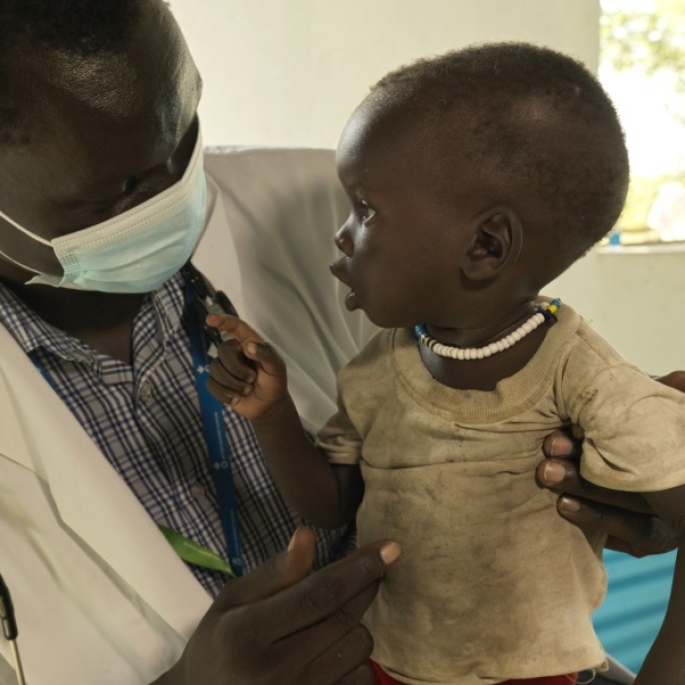
Paguir is a remote area of South Sudan that humanitarian workers can only reach via a 2-hour flight followed by 4 hours by canoe, and then 6 hours trekking through a swamp. In 2019, we opened Paguir’s first health clinic, where Dr. Paulino treats dangerously malnourished children and provide health services to families.
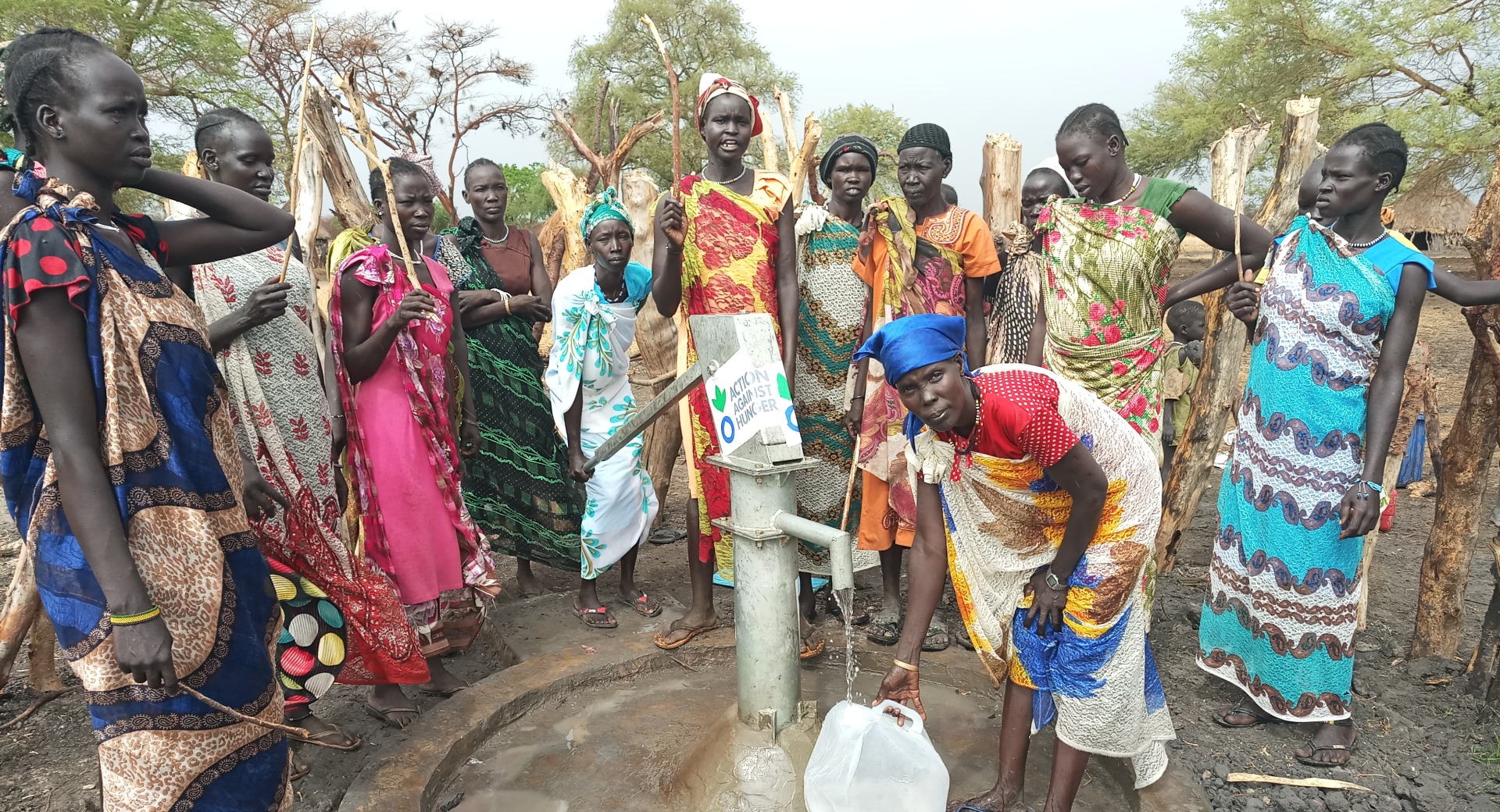
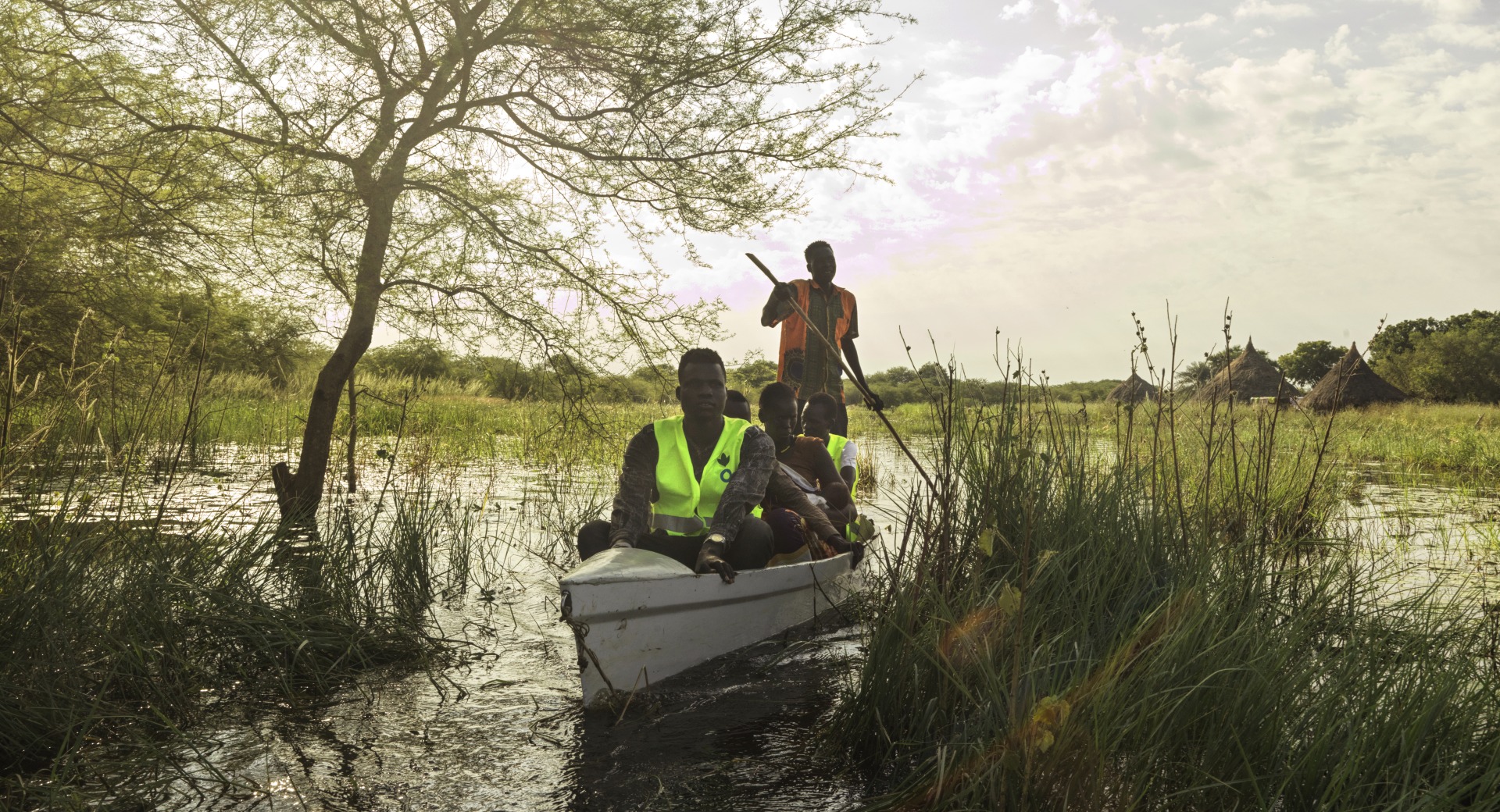
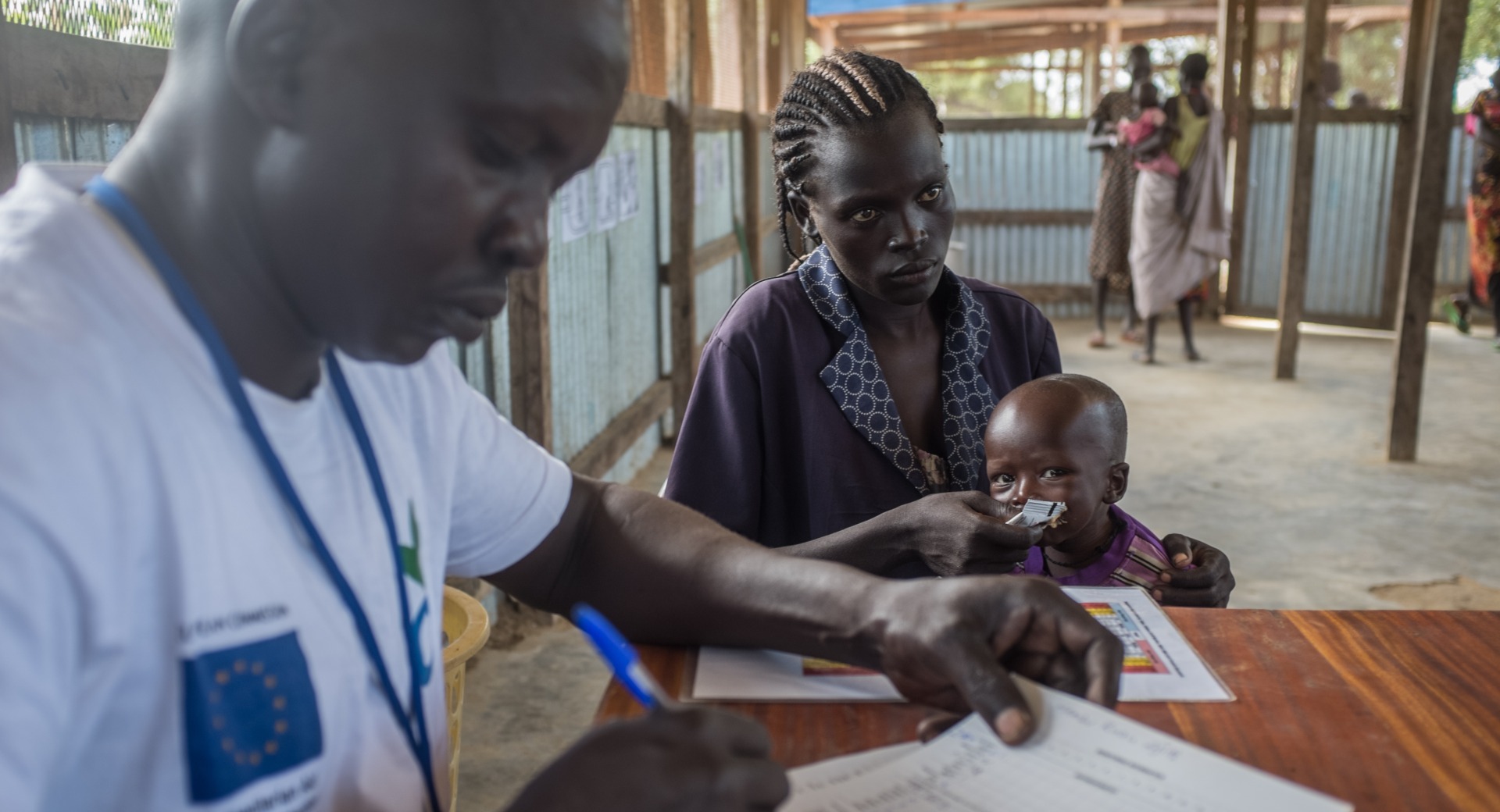
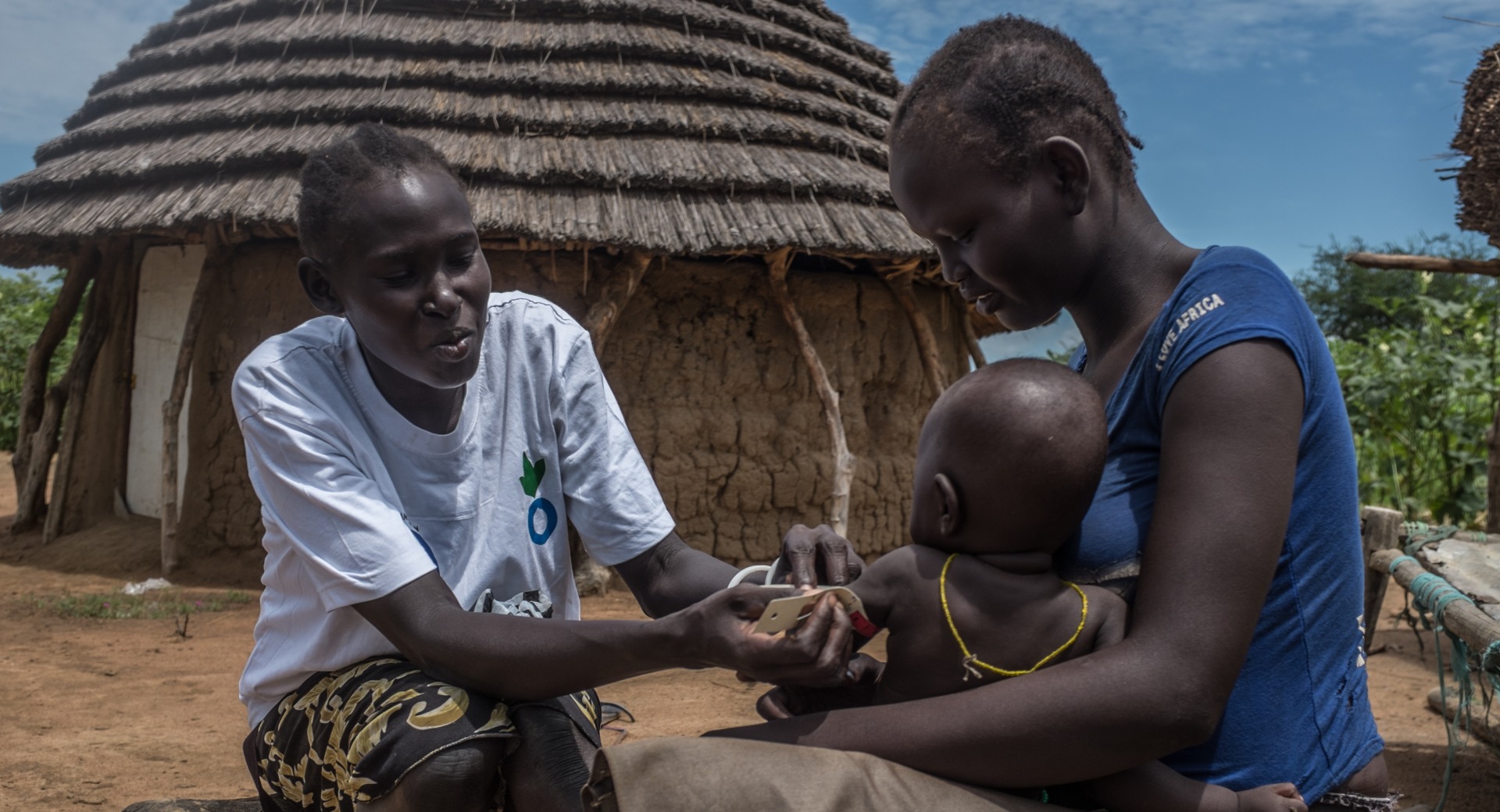
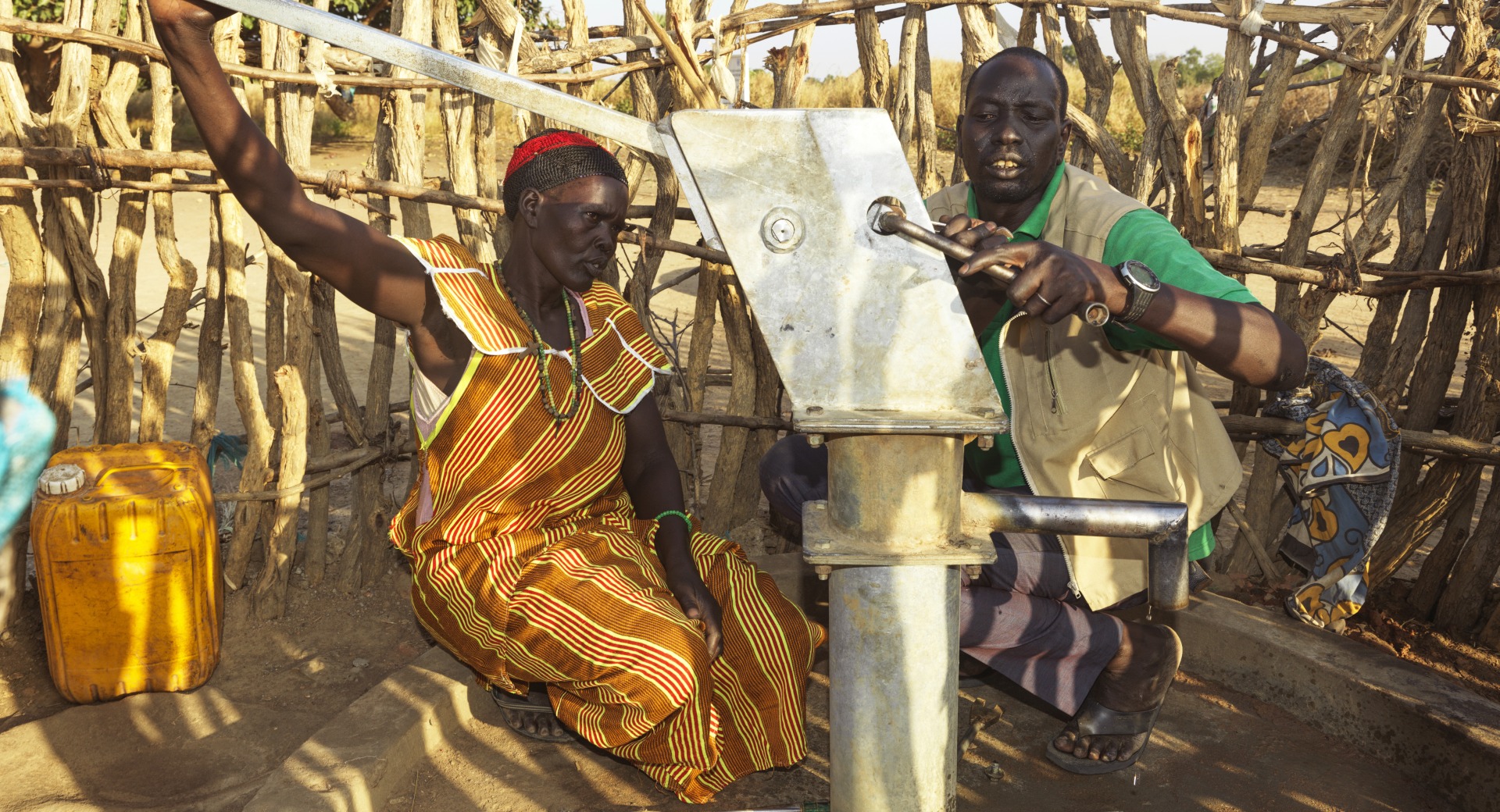
Women are the heart of our lifesaving work in South Sudan. We bring new livelihood activities and help women like Nyalam farm more effectively and provide nutritious food for their families.
South Sudan: Nyalam and the Women Leading the Fight Against HungerOur Emergency Team deploys to help communities facing urgent needs. This team reaches some of the hardest-to-reach areas and, often, they are the only humanitarians for miles.
Read more about how we restore hopeOur pioneering research in South Sudan showed a simplified approach for treating malnutrition in young children was as effective as standard treatment and $123 cheaper per child.
Learn More about our streamlined approach to acute malnutrition"It isn’t easy to be a humanitarian worker. But to me, it is a privilege. Many people have nowhere to turn, if not to humanitarian aid. Their expectations—and the sense of responsibility we feel—are huge.””
— Victor Mallelah, Emergency Nutrition Survey Program Manager, South Sudan
Pledge to End HungerWe build boreholes, which allows women to spend less time fetching water and more time earning income and caring for themselves and their families.
Committed to Change: One Woman Leads a Community to HealthJoin our community of supporters passionate about ending world hunger.